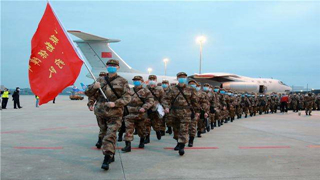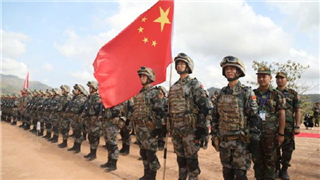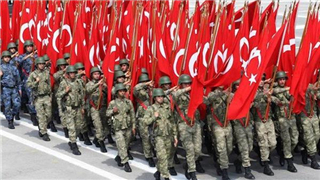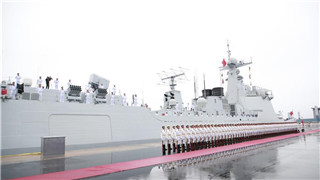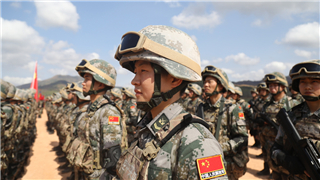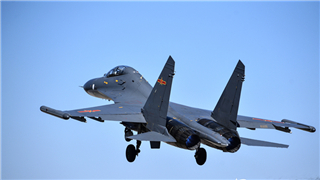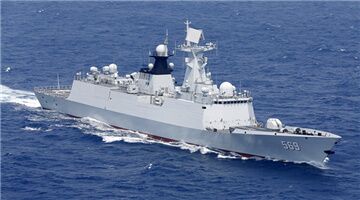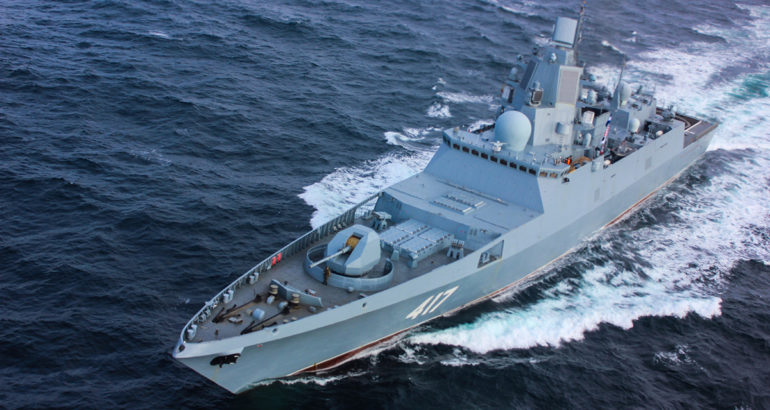
By Fang Xiaozhi
The Black Sea is a stronghold of strategic importance that connects Russia with the major oceans. Moscow has paid close attention to the security situation in the Black Sea in recent years by strengthening the Black Sea fleet continuously to consolidate its military influence in the region.
Izvestia, a daily broadsheet newspaper in Russia, released news on its website that the Russian Navy has recently made the decision to add the Admiral Gorshkov-class frigates(Project 22350) to the Black Sea Fleet, and the fleet base has begun to build a series of coastline infrastructure, including the pier, repair shop, and arsenal. The move will fortify the fleet’s strength by a large margin, change the military landscape in the Black Sea region, and lead to more intense regional competition among various parties.
The addition of new frigates will significantly fortify the overall strength of the Black Sea Fleet. The Russian Navy took a serious hit from the disintegration of the former Soviet Union. The Black Sea Fleet, in particular, has seen a drastic fall in its combat force because most of its vessels have served for nearly 40 years and are in consistent lack of maintenance and upgrade, and the electronic equipment and weapon systems are seriously outdated. Moreover, with the decommissioning of old vessels, the fleet hasn’t been replenished with new replacements and is therefore in dire need of large surface combat vessels.
The decision to deploy Admiral Gorshkov-class frigates in the Black Sea region is an important step taken by the Russian Navy to resolve its predicament and allow the Black Sea fleet to quickly catch up with its western counterparts and become a powerful deterrent force in the region.
Russia's predominance in the Black Sea region will be largely enhanced. For many years the Black Sea has been an important arena contended by the US-led NATO and Russia, the latter, however, hasbeen at a disadvantage due to limited military strength.
But the deployment of Admiral Gorshkov-class frigates will significantly bolster the Black Sea Fleet in its confrontation with NATO. In particular, the Kalibr cruise missile on the frigates has a shooting range long enough to reach America’s military base in Romania, while the Tsirkon hypersonic missile is targeted at the Aegis Ashore Ballistic Missile Defense System (AABMDS) that NATO deploys in the region. Such a powerful combination will realize deterrence against NATO and give the Black Sea Fleet unprecedented advantages in the Black Sea region, thus completely changing the military landscape there and elevating Russia’s position in the Black Sea and the Mediterranean Sea, where Russia is set to play a more important role in geopolitics.
The enhanced capability of the Black Sea Fleet and Russia is bound to aggravate the US-Russia competition in the Black Sea region. The structural conflicts between Washington and Moscow cannot be resolved anytime soon. After Donald Trump came in office, he has intensified the political and military containment and suppression of Russia and insisted on exiting the Intermediate-Range Nuclear Forces Treaty (INF Treaty) regardless of strong opposition from Russia and the international community. He also deployed Aegis Ashore systems in Poland and Romania, which disrupted the strategic stability and balance between the US and Russia and of the world in general, causing Russia to be on high alert.
Russia's decision to deploy new frigates in the Black Sea can be seen, to some extent, as an asymmetrical response to the above-mentioned moves by the US. Going forward, the US is sure to keep stepping up the competition with Russia in post-Soviet regions and further squeeze Russia’s strategic space to cement its superiority; in response, Russia will take tit-for-tat counteractions. As a result, their confrontation will become increasingly intense, so will their game in the Black Sea region.
(Fang Xiaozhi, a researcher at the BRI Institute of Strategy and International Security, Fudan University)
